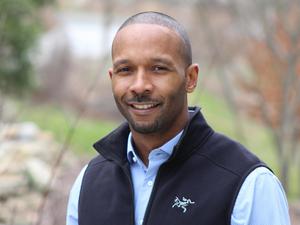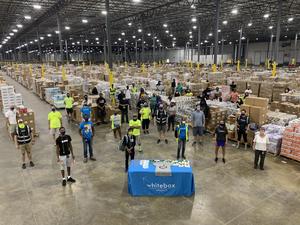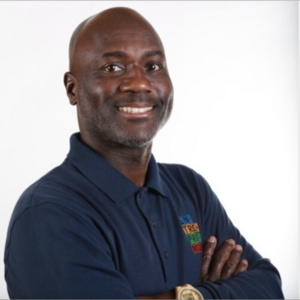
Baltimore is awash in entrepreneurs, incubators and startups — and they always seem to be making news. If you're having trouble keeping track, we've put together a shortlist of five local companies to help.
Sure, there will be many more startups that make big news this year, but these five companies are either coming off significant years or are preparing for major changes. They are large and small. Emerging leaders in their field and early-stage disruptors. And they're all worth keeping an eye on in 2022.
ClearMask
This mask maker was founded in 2017 as a way for health care workers to communicate better with patients who are hard of hearing. (One of the company’s cofounders, Alyssa Dittmar, is deaf and the product was inspired by her own experience.) The startup developed a transparent surgical mask that allows those who are deaf or hard of hearing to read the lips of the wearer.
According to CEO Aaron Hsu, ClearMask wasn’t expecting to take off. Then the pandemic hit, and demand for masks soared.

Hsu said the company views itself more like a traditional business rather than a startup. They haven’t done any fundraising and don’t plan to court investors, which Hsu acknowledged is “a very atypical thing to do.” Hsu said they started ClearMask because they wanted folks who are hard of hearing to be treated humanely in health care settings and understand what their doctor is saying.
“We did this because it was the right thing to do,” Hsu said.
ClearMask employees have been fully remote since before the pandemic. Hsu said they have about 14 or 15 employees, mostly around Baltimore and Washington, D.C., and a lot of independent contractors depending on order volume.
A big deal this year? ClearMask was already approved by the FDA for use as a surgical mask in health care settings. In September, European regulators also signed off on the mask, which the company said makes it the only clear surgical mask to have approval in both America and the European Union.
Hsu said that the company is also rolling out a new ClearMask that has improved protection and advanced filtration.
Femly
Arion Long wants Femly to be the next big thing out of Baltimore.
Femly, founded in 2015, makes organic feminine hygiene products. The company was recently selected to be a part of the Equitech Accelerator in Baltimore.
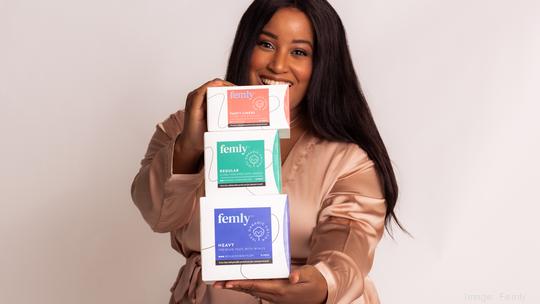
Long said Femly is preparing to announce a national partnership in the first quarter, as well as a new hardware product. She declined to divulge much at this point, but described it as a "first-of-its-kind (product) that will help us increase our capacity.”
The company currently has eight employees and close to $1 million in funding from diluted and non-diluted sources, Long said. (That includes a $10,000 grant from a fund backed by Beyonce.)
Some good news? States and cities across the country are passing laws requiring free feminine care products in some bathrooms. California and Illinois passed laws this year requiring free menstrual products in school bathrooms. Long said Femly is well-positioned to put its products in bathrooms nationwide.
"We’re scaling," Long said. "Our goal is to become the next unicorn. In some ways, I feel like the underdog, but it’s benefited me. I can’t think of any other time for a Black female founder like myself to quietly grow and capture our market share.”
Long said she loves Baltimore and hopes to one day see Femly products stocked in bathrooms at M&T Stadium for Ravens games.
Emocha
This digital health startup helps people manage their medication intake. It is a problem that researchers have determined results in about $300 billion in preventable hospitalizations per year. About 50% of medications are not taken as prescribed, according to the Centers for Disease Control and Prevention (CDC).
According to CEO Sebastian Seiguer, Emocha, founded in 2014, pretty much doubled its business, customer base and employee count in 2020, then did that again in 2021.
“The pandemic fueled a lot of uptick in virtual care,” he said.
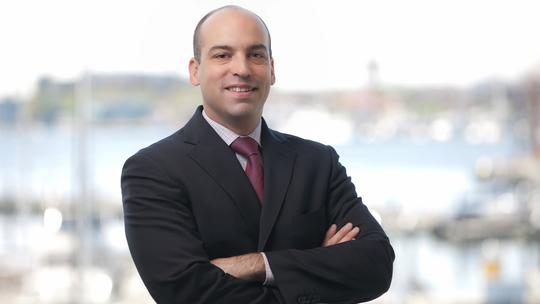
Seiguer said Emocha now has about 80 employees, most of whom live in the Baltimore area. So far the company has received $6 million from the National Institutes of Health, $2 million from angel investors and $6 million from Series A funding this year.
Big regulatory change: The Centers for Medicare & Medicaid Services recently approved reimbursement codes for “Remote Therapeutic Monitoring,” Seiguer said, which is another way to describe exactly what Emocha does.
“We’ve always been a little bit early, but now we’re right on time,” Seiguer said.
Seiguer said Emocha has gained traction with managed care organizations overseeing Medicaid programs. He said this regulatory change will lead to more insurance plans paying hospitals, doctors and other providers to use services like Emocha.
“It’s hard to forecast revenue because the code is so new,” Seiguer said. “Next year is really about educating the market, getting the first few customers on board to use the reimbursement model.”
Tetragram
The medical cannabis industry has been taking off in Maryland and across the country, but how do patients track what products they’ve used and which ones suit their needs? Otha Smith noticed this information gap years ago. That’s where his company Tetragram comes in. The company, founded in 2020, has developed a platform to simplify the medical marijuana industry, educate consumers and build community.
Tetragram has been building credibility within the cannabis industry, Smith said, and is now being promoted in more than 130 dispensaries across the country. The company is currently three people and three contractors.
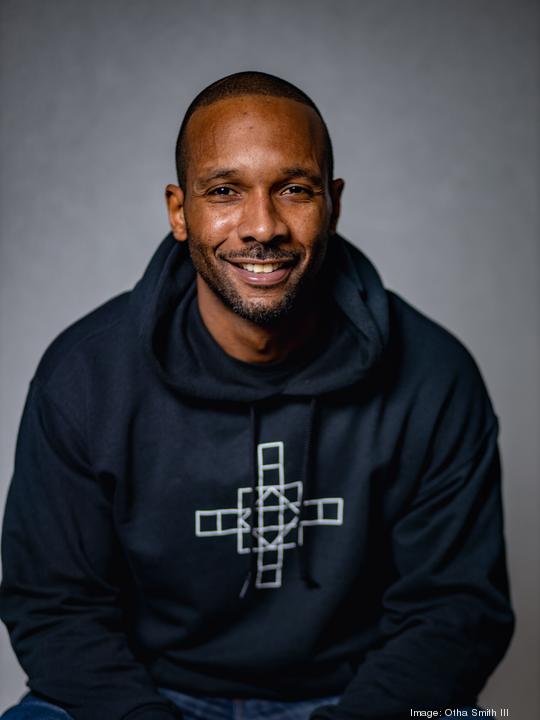
Tetragram plans to release a new version of its app within the next six months or so, Smith said. The plan is to attract more users who are currently posting about cannabis on Instagram, Reddit and Facebook, where conversation about cannabis is sometimes restricted. Smith called it a total redesign and said they’re working with local software company MindGrub, an equity partner in Tetragram.
One scary decision: Smith said an investor wanted to pour $1 million into Tetragram following a pitch competition in Bethesda this year, but the company ultimately turned down the investor after a few months. It was “dumb money,” Smith said, meaning the investor wouldn’t add much to the business other than capital.
“Sometimes I’m still kicking myself, but I think we did the right thing,” Smith said, adding that Tetragram is actively looking for investors to partner with.
Whitebox
Officially launched in 2015, Whitebox experienced rapid growth during the coronavirus pandemic. The company automates the e-commerce cycle for companies lacking the infrastructure to do it alone.
In 2020, Whitebox moved into a new, 365,000-square-foot headquarters and raised $18 million in Series B funding. Now, the e-commerce company has another big announcement. The firm announced earlier this week it has raised an additional $20 million, part of which will go toward building a commerce platform.
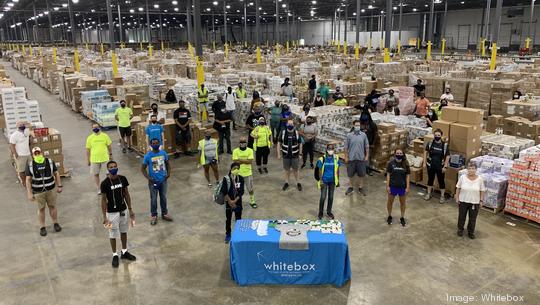
"This additional investment not only validates the continuous momentum we've achieved but will enable us to advance our technology to leverage disparate data and deliver winning strategies across the marketing funnel and deep into operations," CEO Marcus Startzel said in a statement.
Startzel, who joined Whitebox in 2019, knows a thing or two about growing a startup: he took part in two of Greater Baltimore's biggest adtech success stories. He served as vice president of sales at Advertising.com, before the company was acquired by America Online for $435 million in 2004. And he also was a general manager at Millennial Media before it, too, was bought by AOL for $238 million.
A new hire? Whitebox also announced it plans to hire more senior talent, which includes a chief revenue officer, Kenneth Lim.
The BBJ reported in July that the company's total headcount was over 200.

